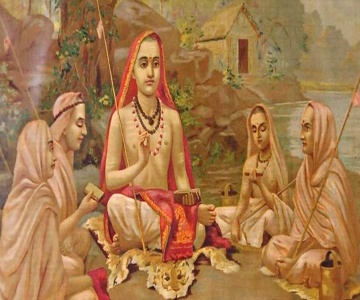What Is Vedanta Philosophy? Know How Swami Vivekananda Ignited Spirituality
By Moumi Majumdar
Vedanta is among the world’s most ancient and religious philosophies, affirming the oneness of existence, the divinity of the soul, and the harmony of religions. It is the philosophical foundation of Hinduism but is universal in its application and is relevant to all countries, cultures, and all religious aspects equally.
Veda means “knowledge,” and anta means “the end of” or “the goal of.” These two terms are combined to form “Vedanta.” The goal of knowledge means the awareness of God with the consciousness of our self-divine nature. Thereby, Vedanta is both the search for self-knowledge and the search for God leading to their attainment in one’s life.
According to the Vedanta teachings, there are four paths to be adhered to for achieving the goal of understanding our divine energy.
1. Bhakti Yoga
Bhakti Yoga is the path of love and devotion, emphasizing practices such as prayer, chanting, and meditation on God as a loving being.
2. Jnana Yoga
Jnana Yoga is the path of knowledge, seeking reason and discernment to discover the divine nature within by casting off all that is false or unreal. Which reflects that the Supreme Reality resides within us.
3. Karma Yoga
Karma Yoga is the path of selfless work to practice detachment and calmness in our work and to understand that the results of any actions are beyond our control.
4. Raja Yoga
Raja Yoga is the path of meditation, which permits us to experience higher states of consciousness to achieve a deeper understanding of our divine nature.
Sri Ramakrishna and his disciple Swami Vivekananda, who introduced Vedanta to the western world, highlighted the use of a mantra-based meditation technique and symbolic images of the divine.
Shiva Jnane Jiva Seva, which means ‘to serve Jiva as Shiva,’ was one of the most important principles that Swami Vivekananda learned from his Master. Vivekananda was the first Indian religious leader to speak for the needy and the downtrodden, coining the word daridra-narayana to refer to the poor.
